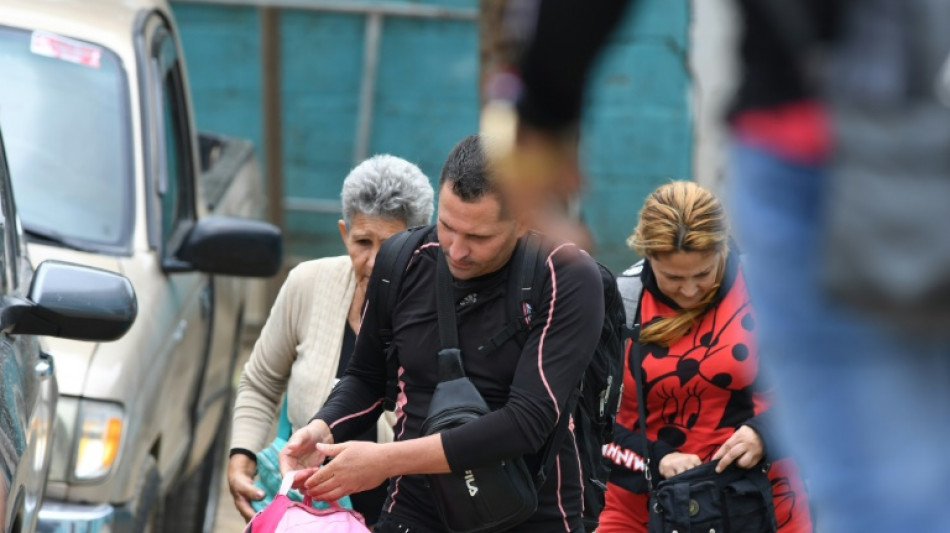

Cuba warns US pressure could trigger migration surge
Cuba warned Tuesday that US pressure could lead to a new surge in migration, as Washington imposed fresh sanctions to curb the island's key money-maker of supplying doctors abroad.
President Donald Trump has ramped up pressure since returning to the White House in January, including swiftly reversing an agreement by predecessor Joe Biden that removed Cuba from a list of state sponsors of terrorism.
Johana Tablada, deputy general director of the Cuban foreign ministry's US division, said on a visit to Washington that Trump's policies were "deliberately directed to provoke starvation" and to "destabilize Cuba."
"It looks really obvious for us that reinforcing the tools to suffocate the Cuban economy will probably trigger the same result as last time, during the first term of Trump. It triggers historic massive migration," she told reporters.
Cuba in recent years has seen its biggest wave of emigration since Fidel Castro's 1959 communist revolution, as the island faces economic headwinds and after rare mass protests in 2021.
The island has lost around one million inhabitants -- or around a tenth of its population -- since 2012, according to census data. Nearly 700,000 Cubans entered the United States, legally or illegally, between January 2022 and August 2024.
Trump has made mass deportations of migrants a key priority. But Tablada said the Trump administration has suspended once-routine migration talks with Cuba.
She said that Cuba nonetheless has accepted a plane of citizens deported from the United States each month, continuing an arrangement with the Biden administration.
"When I tell you that Cuba is the adult in the room, I am not exaggerating," she said.
Secretary of State Marco Rubio, a Cuban-American and vociferous critic of Havana, has said that the only item of business worth discussing with Cuba is ending the government.
He announced Tuesday that the United States would restrict visas from several Central American government officials, who were not named, for cooperating with Cuba to bring in doctors.
"The Cuban labor export program abuses the participants, enriches the corrupt Cuban regime and deprives everyday Cubans of essential medical care that they desperately need in their homeland," he said in a statement.
Cuba has sent doctors overseas for years in a key source of soft power -- and revenue.
Cuba dispatched 22,632 medical professionals to 57 countries in 2023, with Cuba earning $6.3 billion in 2018 and $3.9 billion in 2020, in part in the form of oil from Venezuela.
On a trip in March, Jamaica led Caribbean countries in rejecting Rubio's pressure, saying the Cuban doctors were vital for them and enjoyed rights.
W.Srinivasan--MT




